US election: Who does China want to win the presidential race?
China is poised to take over as the world’s superpower – and no matter who wins the upcoming Presidential election, they’ll be one step closer.

Who does China want to win the November US presidential election? Trump says Biden. Biden says Trump. Beijing says … both?
The US Director of the National Counterintelligence and Security Center last month warned foreign states were using “covert and overt influence measures” to sway the vote in their favour.
His statement asserted Russia wants to damage Joe Biden. But it also claims China doesn’t want Donald Trump returned to power.
Beijing, he says, “prefers that President Trump – whom Beijing sees as unpredictable – does not win re-election”, and has been “expanding its influence efforts” ahead of the November vote.
Meanwhile, Russia has been attempting to “denigrate” Biden while “seeking to boost President Trump’s candidacy on social media”.
RELATED: ‘War will come’: China’s shock new threat
.@NCSCgov Director William Evanina issued an election threat update for the American public: https://t.co/3EgVTOBnjU pic.twitter.com/77pEAwb98R
— Office of the DNI (@ODNIgov) August 7, 2020
But some analysts argue Beijing’s already won.
November simply determines exactly by how much.
Washington has withdrawn from the World Health Organisation. Its participation in many other international forums has been called into doubt. So much so that many allies have begun to doubt its commitment to long-held treaties.
Whatever the outcome of the November election, a grim reality awaits whomever occupies the White House in 2021. A crippled budget. A debilitating pandemic. Political partisanship. Fractured public institutions.
All will likely consume the President’s attention.
But the perils of the Western Pacific are not likely to be ignored.
THE ART OF WAR
“Victorious warriors win first and then go to war, while defeated warriors go to war first and then seek to win … The greatest victory is that which requires no battle … – Sun Tzu, The Art of War.
This is the heart of what the modern era calls ‘hybrid warfare’.
It’s competition by any – and all – means.
Politics. Perception. Economics. Information.
The aim is to establish dominance in as many fields as possible – without firing a shot.
It is “a war that surpasses all boundaries and restrictions. It takes non-military forms and military forms and creates a war on many fronts. It is the war of the future,” a 1999 Chinese study on ‘unrestricted warfare’ found.
RELATED: China’s most aggressive move yet
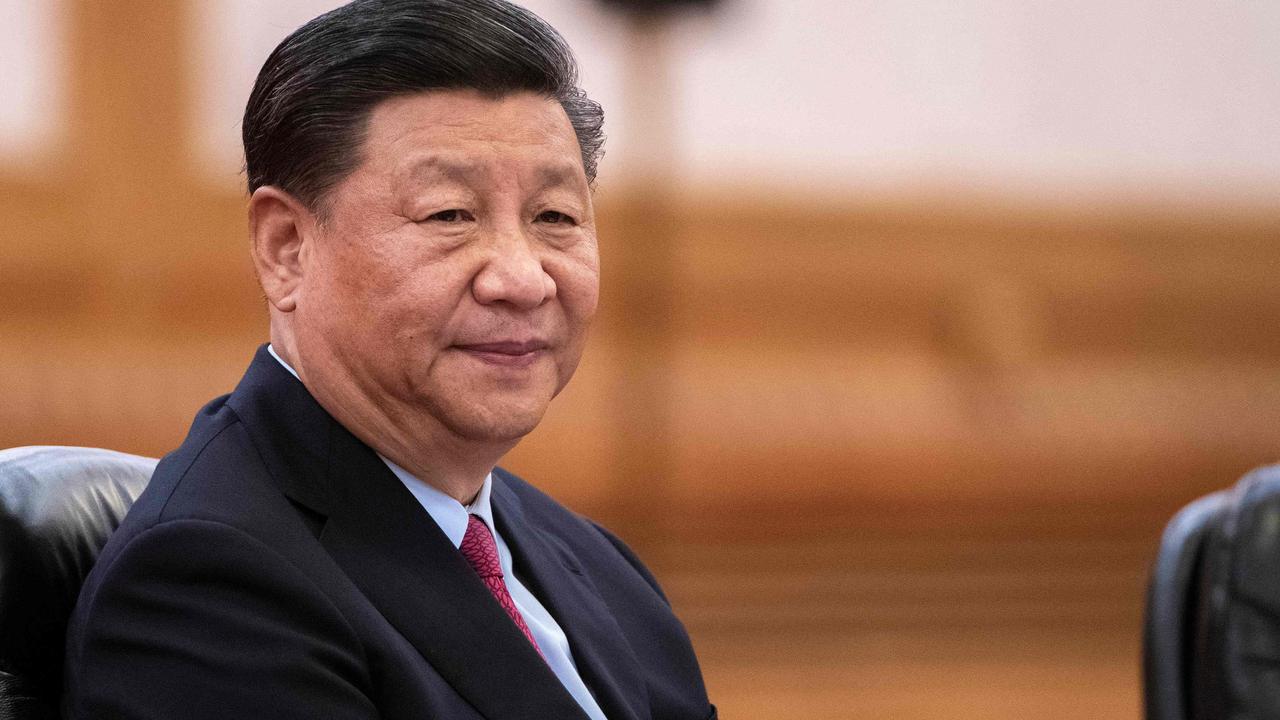
Now, the Washington-based think-tank Centre for Strategic and International Studies says Beijing has embraced this way of thinking.
Russia has already demonstrated US democratic elections are open to manipulation.
And China has demonstrated a willingness to do just that in the past – seeking to control who gets nominated to Hong Kong’s parliament, covertly supporting candidates in Taiwan – even going so far as to send a carrier battlegroup past the island shortly before a vote was held.
So is Beijing aiming to influence who takes the top Washington job?
“American domestic dynamics are well beyond what we can predict or influence,” China’s ambassador to the US Cui Tiankai told the Brookings Institution last month. “We have no intention or interest in getting involved.”
And perhaps that’s the most telling sign of all.
“Regardless of who is taking the oath of office on the Capitol steps next January, the chaos of US domestic politics is unlikely to abate any time soon,” writes US foreign policy analyst Jacob Parakilas. “And foreign policy is usually at the mercy of domestic politics, rather than the other way around.”
IN THE SHADOWS
Former White House National Security Adviser John Bolton’s tell-all book The Room Where It Happened makes an explosive claim: that US President Donald Trump asked China’s Chairman Xi Jinping for help in winning the November election.
RELATED: China and US in battle for supremacy
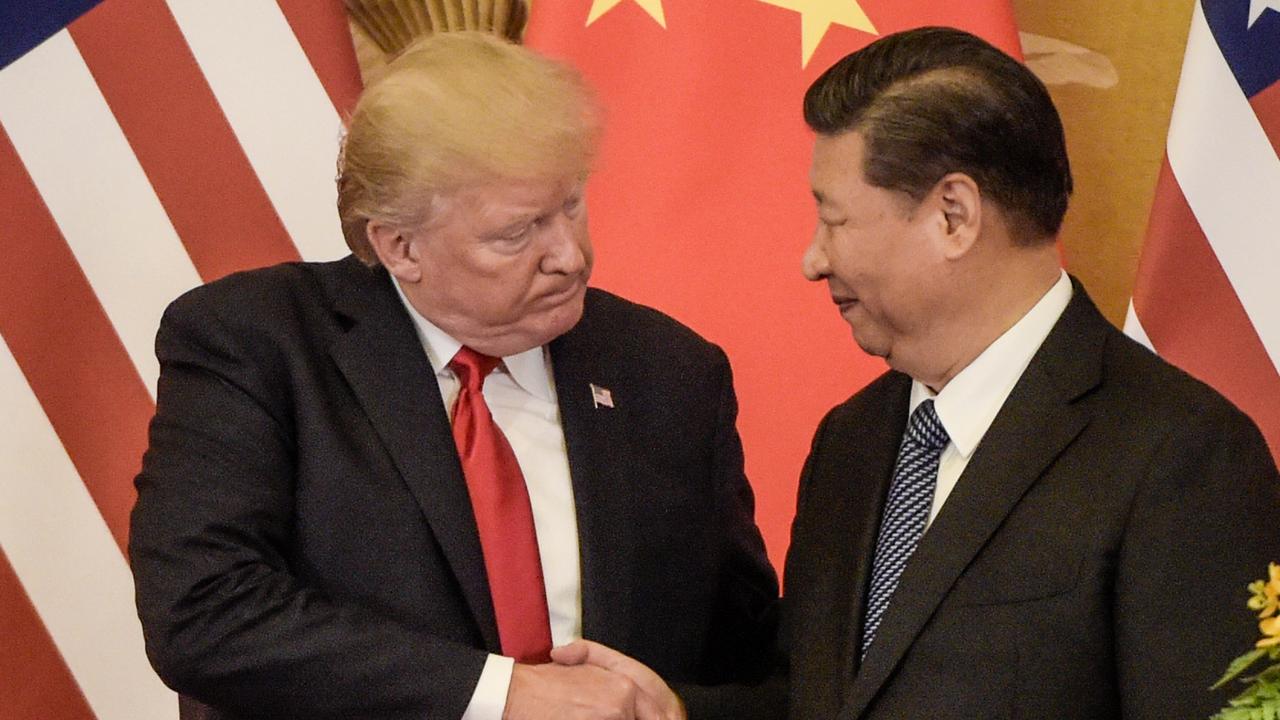
Foreign influence – or interference – in US elections is outlawed by the constitution.
Beijing has remained largely silent on this allegation. Foreign Ministry spokesman Zhao Lijian simply reiterated China had “no intention” to interfere with US elections. Meanwhile, any discussion of Bolton’s book is actively being censored behind China’s ‘Great Firewall’.
The information war has been won within China. Strict censorship and the banning of Western social and traditional media services make certain of that.
All that remains is dictating the narrative in the US.
On the contrary, Chinese netizens wish for your reelection because you can make America eccentric and thus hateful for the world. You help promote unity in China and you also make intl news as fun as comedy. Chinese netizens call you “Jianguo,†meaning “help to construct Chinaâ€. pic.twitter.com/Fzj5fvmWcx
— Hu Xijin 胡锡进 (@HuXijin_GT) May 21, 2020
“Many ordinary Chinese people want Trump to win, because they think Trump has destroyed the American system and its alliances,” says Renmin University in Beijing international affairs director Wang Yiwei. “So if Trump continues to do that, there may be opportunities for China.”
It’s a sentiment echoed by a key Chinese trade negotiator.
“We want Trump to be re-elected; we would be glad to see that happen,” says Long Yongtu. His tweets make him “easy to read” and therefore “the best choice in an opponent for negotiations”.
The editor of the Communist Party mouthpiece Global Times, Hu Xijin, proclaimed on Twitter: “I strongly urge American people to re-elect Trump because his team has many crazy members like (Secretary of State Mike) Pompeo. They help China strengthen solidarity and cohesion in a special way. It’s crucial to China’s rise. As a (Communist Party) member, I thank them.”
The two political leaders of the US obviously did not show an exemplary role to American people on how to engage in debates. Such a chaos at the top of US politics reflects division, anxiety of US society and the accelerating loss of advantages of the US political system. pic.twitter.com/qZh9Ra6ixl
— Hu Xijin 胡锡进 (@HuXijin_GT) September 30, 2020
TRUMP’S TWISTS AND TURNS
“Honestly, I think, as tough as this negotiation was, I think our relationship with China now might be the best it’s been in a long, long time,” Trump told a press conference on January 29. “And now it’s reciprocal. Before, we were being ripped off badly. Now we have a reciprocal relationship, maybe even better than reciprocal for us.”
As recently as February Trump was publicly praising Xi for his “hard work” and “transparency” in combating COVID-19.
“I spoke with President Xi. We had a great talk. He’s working very hard, I have to say. He’s working very, very hard. And if you can count on the reports coming out of China, that spread has gone down quite a bit,” President Trump told a February 27 press conference.
But, as the November election approached, Mr Trump had changed his tune.
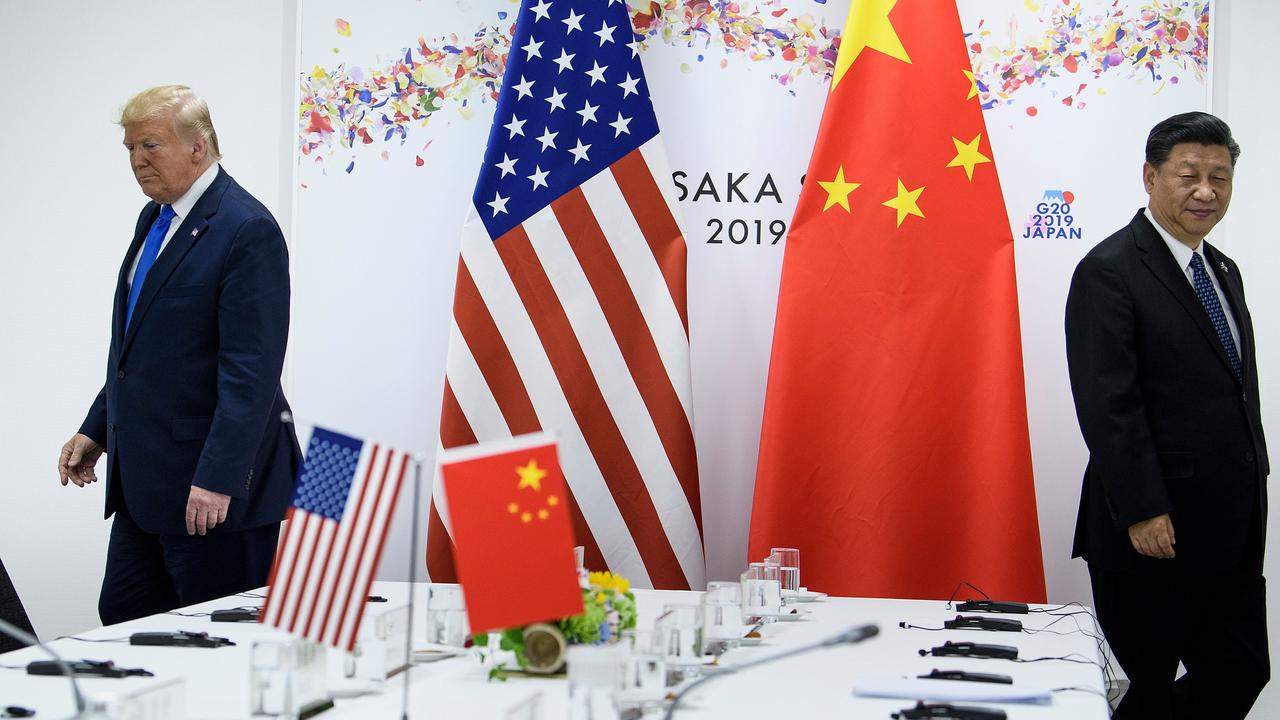
Whatever China’s response to Trump’s alleged plea for help, the President has seized upon public perceptions of Beijing being a new, rising threat.
“China will do anything they can to have me lose this race,” the President told Reuters in April.
“Joe Biden and President Obama freely allowed China to pillage our factories, plunder our communities and steal our secrets,” Trump told a Rose Garden press conference in July. “Joe Biden’s entire career has been a gift to the Chinese Communist Party.”
He hardened that line even further in an August radio talkback session.
“If I don’t win the election, China will own the United States,” Mr Trump proclaimed. “You’re going to have to learn to speak Chinese.”
BEIJING BEFUDDLED
China’s been no responsible world citizen. It is imposing its warships and fishing fleets on Japan, the Philippines, Vietnam, Malaysia and Indonesia. It is pushing at its borders with India, Nepal and Borneo. Allegations are flying about its suppression of ethnic Uyghurs and Tibetans. Its foreign influence campaigns are eliciting outrage in Europe and Australia.
“All this despite a lot of sound and fury emanating from Washington where a president has provided conflicting signals – one day, praising President Xi Jinping, the next lambasting the Chinese,” La Trobe University adjunct professor Tony Walker tells The Conversation. “One day pleading with Xi to do a trade deal to help him get re-elected, the next day leveraging America’s allies to exclude Huawei from a build out of their 5G networks.”
It’s an erratic approach that is both bemusing and beneficial to Beijing.
None of the objectives the 74-year-old Trump outlined in his 2016 election campaign to contain China have been met.
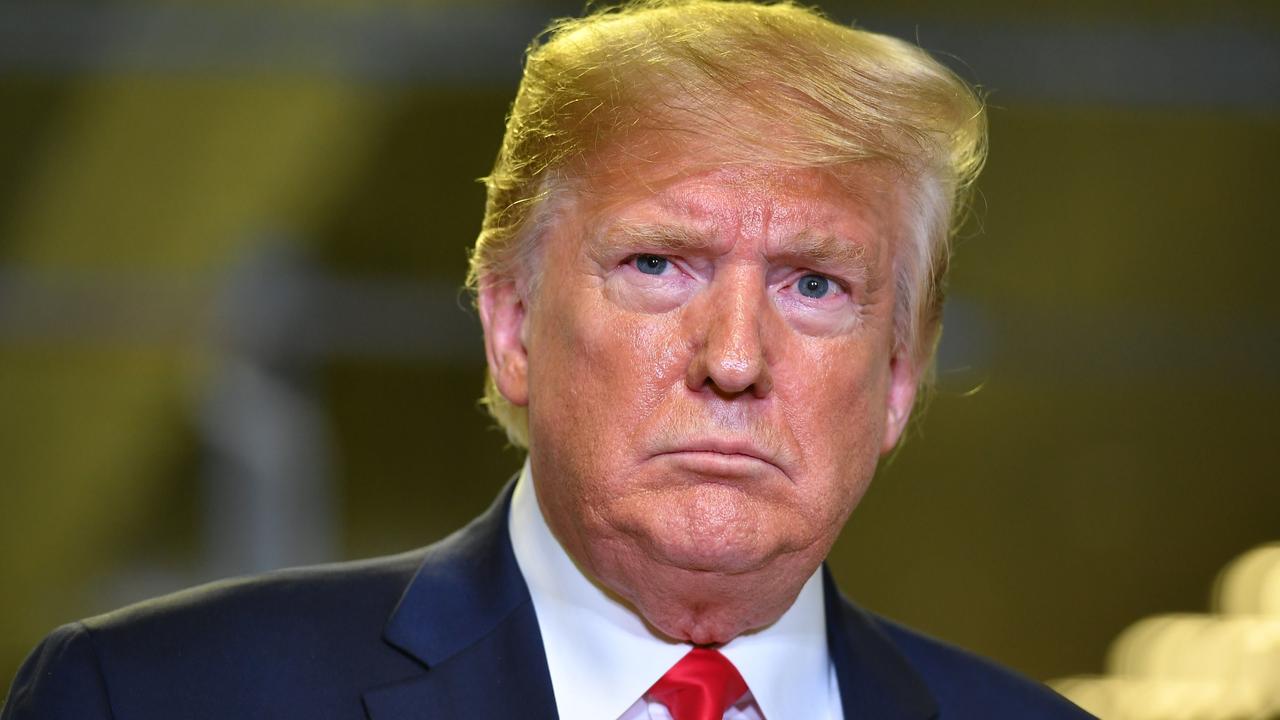
The trade deficit remains the same. Exports have fallen. Manufacturing jobs have not returned. Beijing’s espionage, influence and economic campaigns continue to be waged.
“Of all the Trump administration’s foreign policy failures, it is hard to think of one more comprehensive — or consequential — than its China policy,” says Council on Foreign Relations Philip Gordon.
“It is hard to think of a single aspect of Sino-American relations that has evolved favourably for the United States.
Instead, Walker argues, Trump has unbalanced a delicate world order.
“Trump’s battering ram approach to China carries real risks for a shaky global environment that is being undermined in any case by lack of stable American leadership,” Walker says “The risk of an escalation, military or otherwise, in a simmering Sino-US relationship are real.”
BIDEN’S BACKFLIP
Democrat presidential candidate Joe Biden has in the past also been upbeat about his relationship with Beijing. The 77-year-old has also repeatedly attacked Trump’s hostility towards the emerging great power while denying the Communist state was an emerging economic and strategic competitor.
“I’ve spent more time in private meetings with Xi Jinping than any world leader,” he declared in 2018. “Twenty-five hours of private dinners.”
Xi, for his part, went so far in 2013 to call Biden “my old friend”.

“Trump has much to work with in his criticisms of Biden,” says Walker, noting that the Democrat leader’s Congressional and White House career covers much of the time where China was being encouraged to join the community of nations as a responsible member.
“He can’t walk away from these viewpoints,” Walkers says. “But nor will he be able to ignore criticisms levelled at him that he has been too accommodating towards China.”
Biden’s changed his tune following China’s apparent desire to exploit the international pandemic for its political favour.
He told a Democratic primary debate that Xi was a “thug” who had imprisoned one million ethnic Uyghurs in “concentration camps”. But he barely mentioned China in his acceptance speech at the Democratic National Convention.
Will he adhere to the Democrat’s 92-page party platform that declares: “Democrats will take aggressive action against China or any other country that tries to undercut American manufacturing,” work with “allies to stand up to China,” condemn “China’s mass internment of Uyghurs and other ethnic minorities” in Xinjiang, and enforce sanctions on entities “responsible for undercutting Hong Kong’s autonomy”?
And does Beijing back Biden?
Gal Luft, co-director of the Institute for the Analysis of Global Security in Washington, told the Hong Kong-based South China Morning Post that neither candidate was an appealing option.
“(But) for Beijing the choice is between détente and war, and Biden is more likely to offer the former.”
GREAT POWER COMPETITION
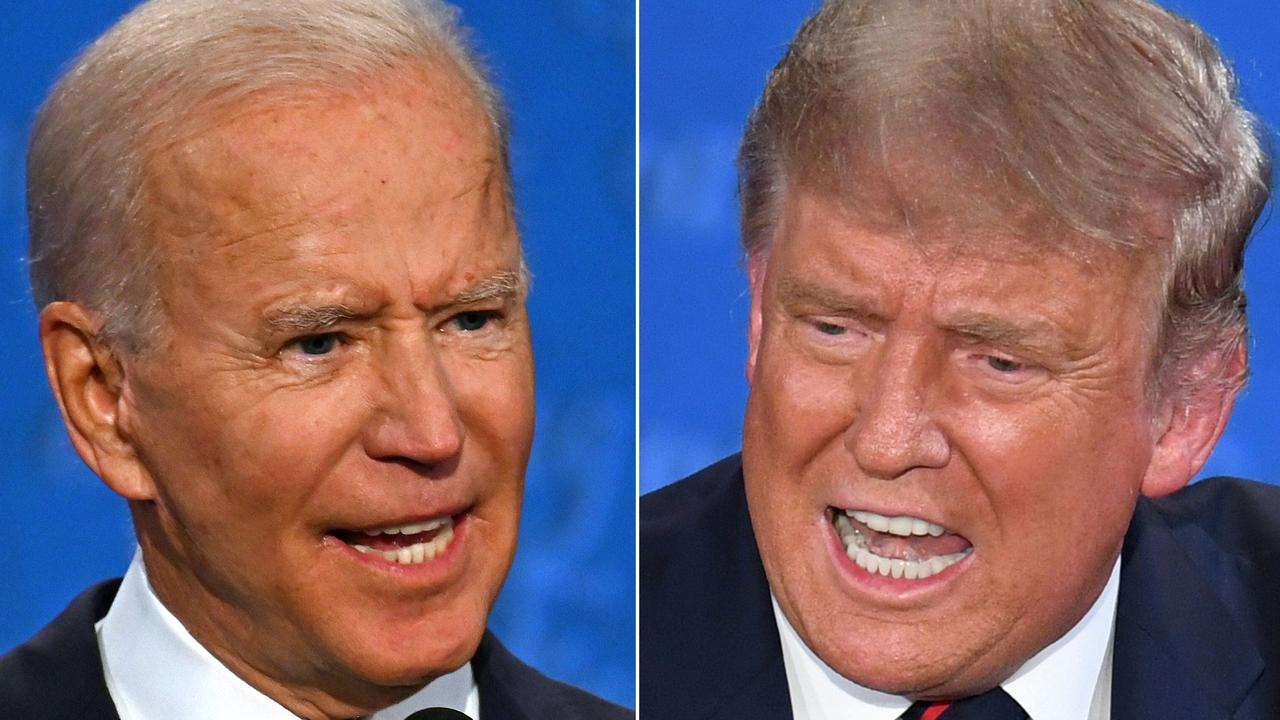
“What is absolutely clear, less than four months out from an election on November 3, is that Trump is running as hard against China as he is against Joe Biden, or a combination of both,” says Walker.
Biden is similarly waging a two-front campaign.
And that, says Walker, is inevitable.
“It would be wrong to attribute changing US views of China primarily to American domestic politics. A tougher China policy will last regardless of who wins the presidential election. Indeed, US policy towards China could become even more critical under a Democratic president. A Joe Biden administration would be less preoccupied with negotiating narrow trade agreements and more focused on addressing other troublesome aspects of Chinese behaviour.”
George Magnus of Oxford University’s China Centre says it would be ‘wishful thinking’ to believe Biden could restore the status quo. “I don’t think America’s China policies will be materially different if Biden wins. The systemic nature of the adversarial relationship means that individuals may manage things differently but will almost certainly not alter the trajectory,” says Magnus.
But backing Mr Trump may have benefits for Beijing.
“There’s no question that the re-election of President Donald Trump would endanger both the US and the world,” writes former German foreign Minister Sigmar Gabriel. “And there’s ample reason to fear that a close election could drive the US into a deep, prolonged constitutional crisis, and perhaps into civil violence. At a time of growing global risks — from pandemics and climate change to nuclear proliferation and Chinese and Russian assertiveness — a US political implosion would be the ultimate threat multiplier.”
#PeoplesDailyComments: The US must stop making an issue out of China in presidential election. The general election of the US is its internal affair and China has never interfered in it and has no interest to do that. https://t.co/lEDeY06dMO pic.twitter.com/57dHw6n8h6
— People's Daily, China (@PDChina) September 30, 2020
Beijing’s preference is as yet unclear.
But Chairman-for-life Xi has time on his side.
“China will be taking a long view of what must seem to its leaders, behind the vermilion walls of the Forbidden City, like an American version of Peking opera, in which stereotypes of the good, bad and ugly are paraded on stage,” writes Walker. “What is clear is that we are living through a moment in history when decisions now about managing China’s rise will have consequences long into the future. This is a time for steadiness and resolve among friends and allies.”
Jamie Seidel is a freelance writer | @JamieSeidel




